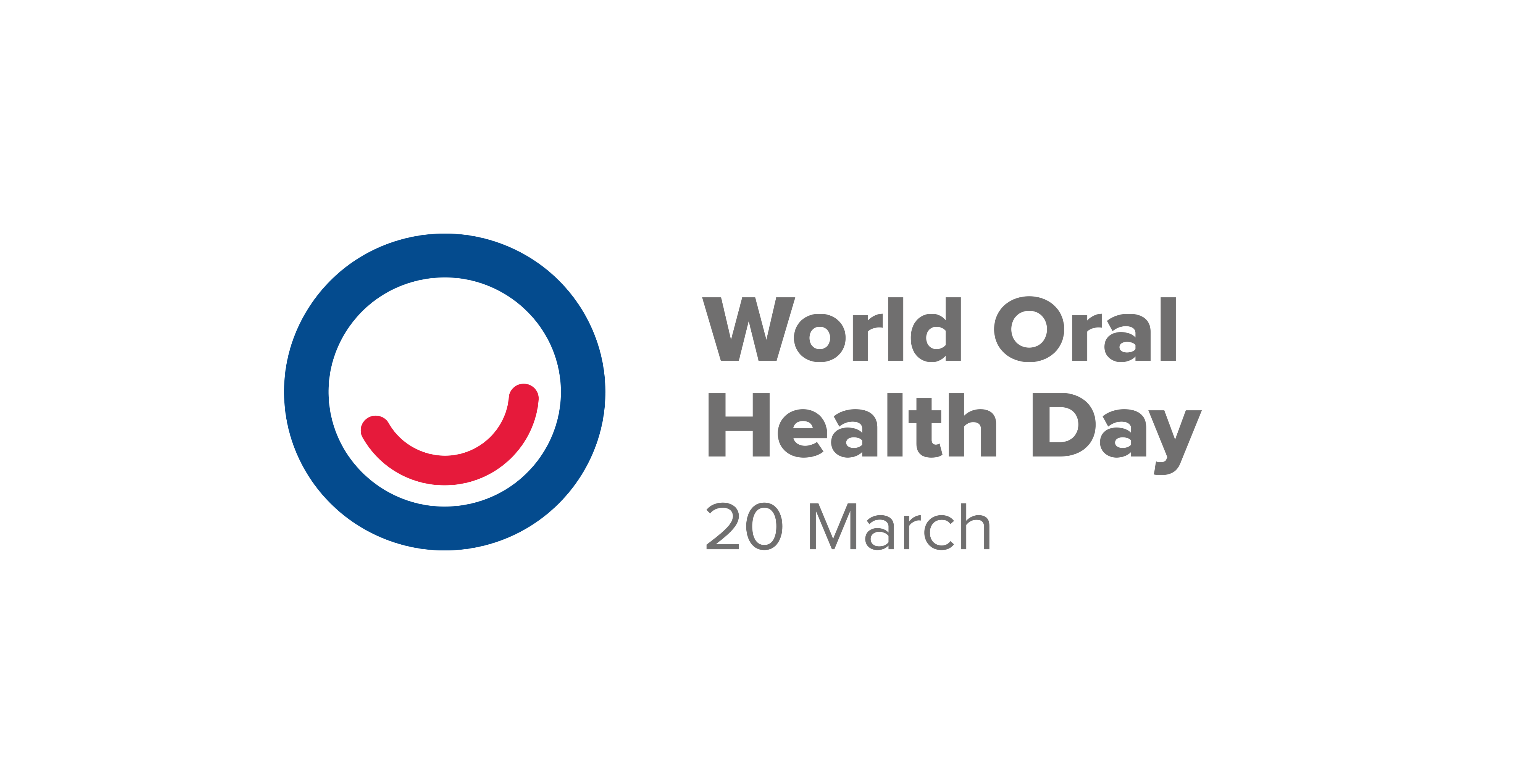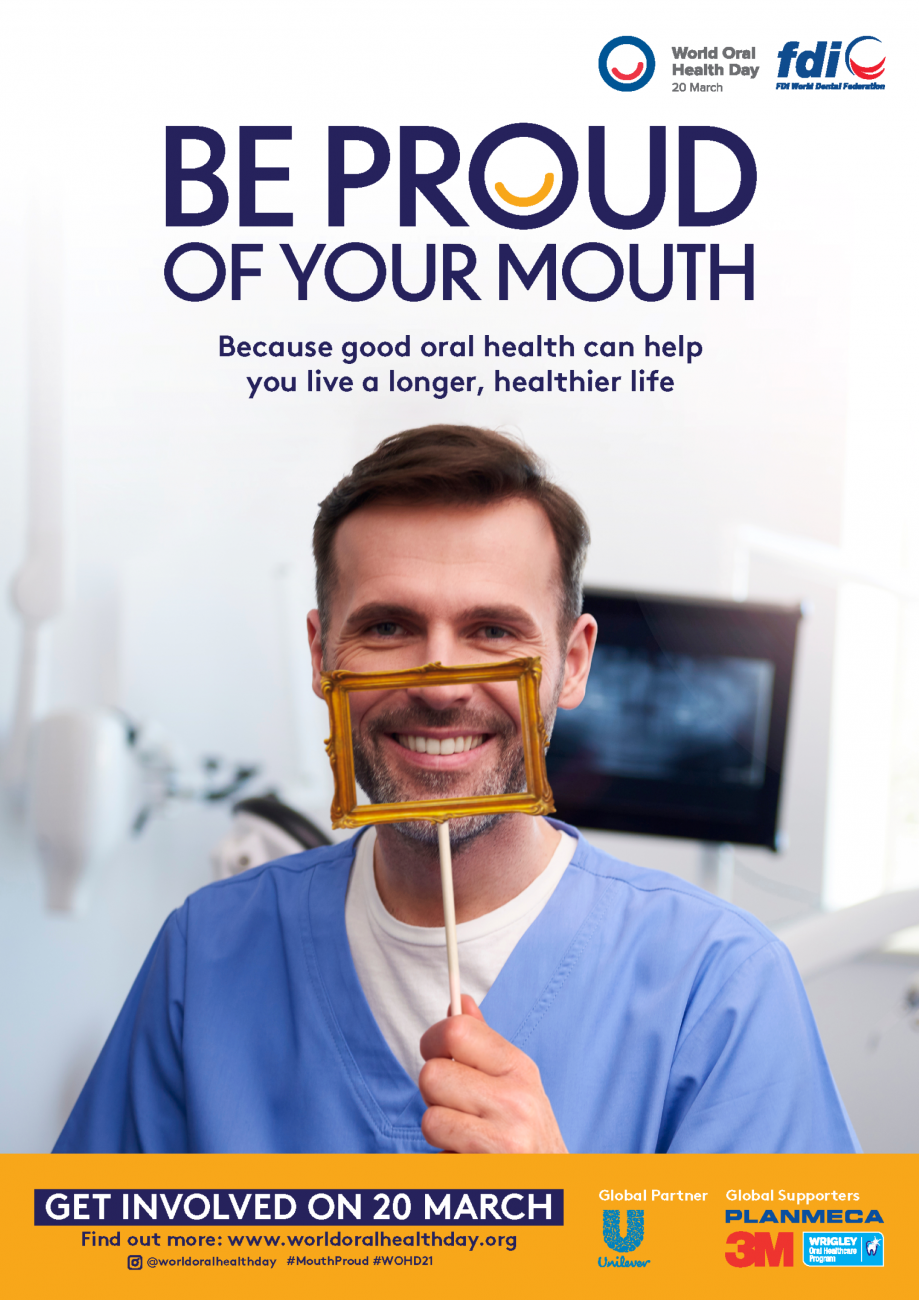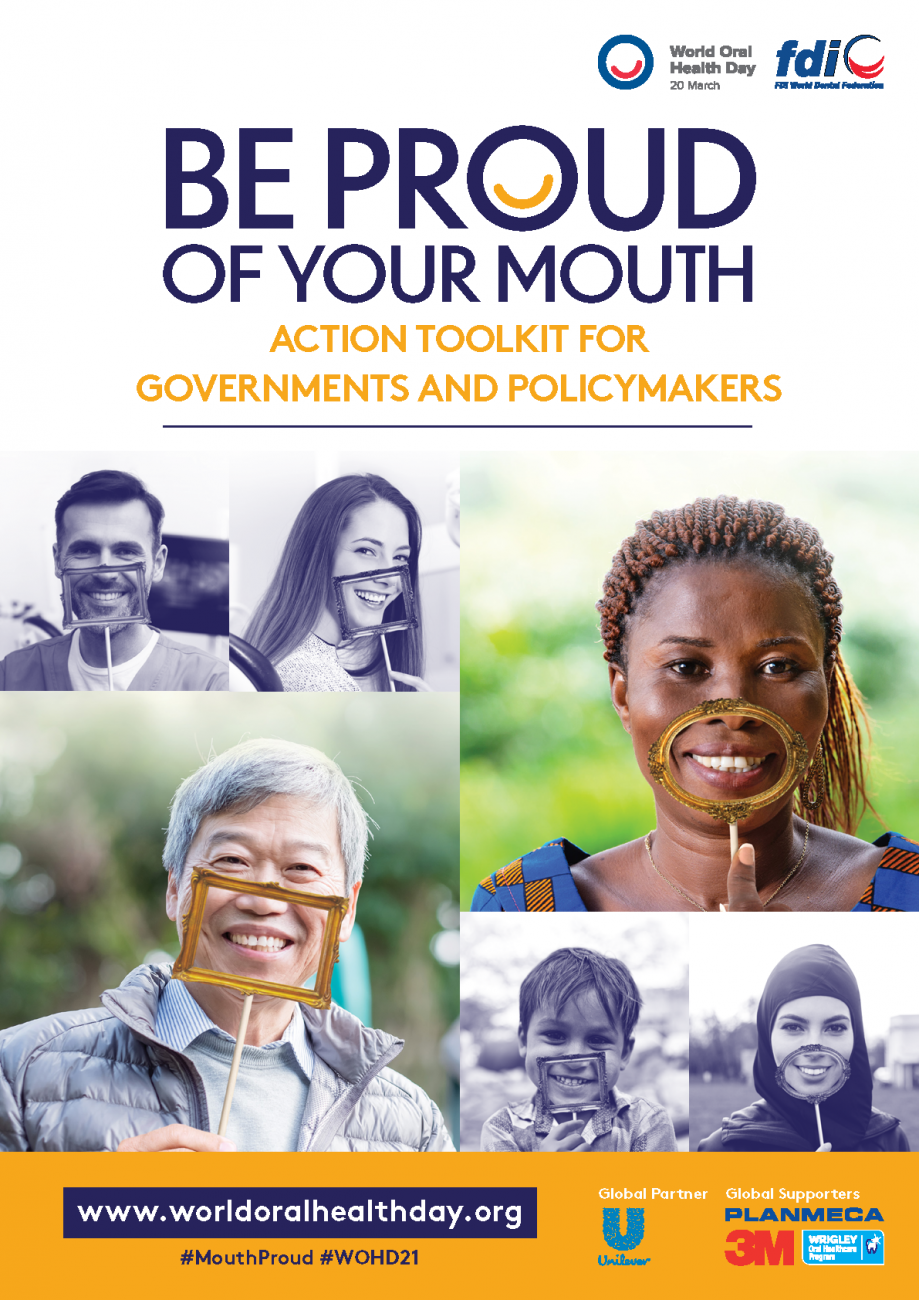March 20 - World Oral Health Day 2021
 In 2008, the FDI established the World Oral Health Day (WOHD). Since 2017, the Republic of Belarus has joined the celebration of World Oral Health Day, and a new date has been added to the calendar of dental events - March 20.
In 2008, the FDI established the World Oral Health Day (WOHD). Since 2017, the Republic of Belarus has joined the celebration of World Oral Health Day, and a new date has been added to the calendar of dental events - March 20.
The 2016 Global Burden of Disease Survey estimates that approximately 3.58 billion people worldwide are affected by oral diseases. The most common health disorder assessed is caries in permanent teeth. 
Given the importance of the problem, at the 148th session of the WHO Executive Board on January 19, 2021 in Geneva, a draft resolution was developed to develop by 2022 a draft global strategy, in consultation with Member States, to combat oral diseases in accordance with the Global Plan action for the prevention and control of noncommunicable diseases 2013-2030, and proposed to transform this global strategy by 2023 into an oral health action plan, including a framework to track progress with clear measurable goals to be achieved by 2030.
Oral health is one of the indicators of the overall health of the body and quality of life. Almost all diseases and conditions are either largely preventable or treatable in their early stages. The burden of oral disease can be reduced through public health interventions that target common risk factors.
The main goal of World Oral Health Day is to disseminate information to people of all ages about the impact of oral health on overall physical health through awareness-raising, educational campaigns and other events. Recommendations for the prevention of dental disease include:
- a balanced diet low in free sugars to prevent the development of dental caries, premature tooth loss and other diet-related noncommunicable diseases;
- proper consumption of fruits and vegetables, which may play a protective role in the prevention of oral cancer;
- reducing smoking, smokeless tobacco use, including catechu nut chewing, and alcohol consumption to reduce the risk of oral cancer, periodontal disease and tooth loss;
- promoting the use of protective equipment during sports and motorized vehicle travel to reduce the risk of facial injury.
 In addition to risk factors common to noncommunicable diseases, fluoride exposure should be advised for the prevention of oral diseases. Dental caries can be largely prevented by optimal exposure to fluoride from various sources, such as fluoridated drinking water, salt, milk and toothpaste. It is recommended to brush your teeth twice a day with a toothpaste containing fluoride (1000 to 1500 ppm).
In addition to risk factors common to noncommunicable diseases, fluoride exposure should be advised for the prevention of oral diseases. Dental caries can be largely prevented by optimal exposure to fluoride from various sources, such as fluoridated drinking water, salt, milk and toothpaste. It is recommended to brush your teeth twice a day with a toothpaste containing fluoride (1000 to 1500 ppm).
Nearly everyone will experience dental problems throughout their lives, many of which could have been avoided with prevention from an early age.
Visit your dentist at least once a year. You will be timely prescribed and carried out preventive measures and, if necessary, dental treatment.
Following these simple guidelines will help keep your teeth healthy.
Chief dentist of the Ministry of Health of the Republic of Belarus Matveev A.M.
Organizational and methodological department of the state institution "Republican Clinical Dental Clinic"

